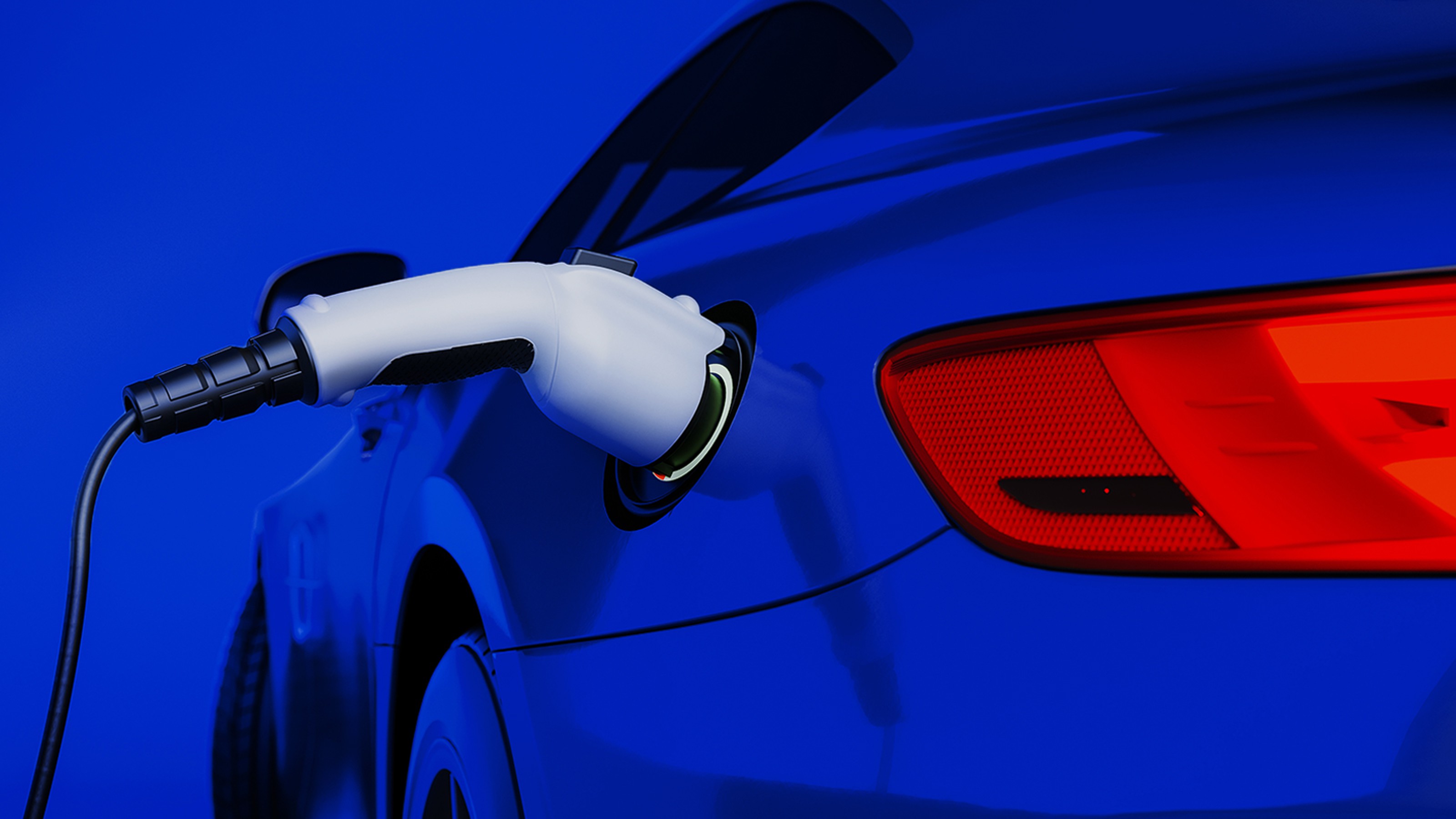Repealing Fuel Economy Standards To Cost American Households Nearly $1000 Per Year

Think we’ll just responsibly choose more fuel efficient vehicles, and the market will take care of the rest? Good luck with that.
Since the first oil crisis of the 1970s, there has been a concerted push to increase the fuel efficiency of automobiles in America. As oil prices have soared and become increasingly unstable, these increased fuel standards have become implemented nationwide. While demanding more of automakers, the increased cost has not been passed along to consumers, as entry-level vehicle prices have remained constant when adjusted for cost-of-living over the past 40+ years. Meanwhile, the increased fuel standards have saved low-to-middle-income Americans anywhere between 1% and 2% of their annual income: adding up to tens of thousands of dollars per family over a lifetime. This year, EPA administrator Scott Pruitt and the Trump administration have made moves to undo this progress. The cost will be tremendous, and borne by all American consumers.

Throughout the years, many objections to increased fuel economy standards have been raised by both the auto industry and wary consumers, including:
- that new fuel standards would reduce vehicle choice,
- that imposing these standards would result in more expensive vehicles,
- that differences between in-lab and on-road fuel efficiencies would render the standards meaningless,
- and that such standards, even when implemented across the world, don’t actually meet their goals.
Yet all of these objections, when looked at in any sort of detail, turn out to run counter to the actual facts of the matter.
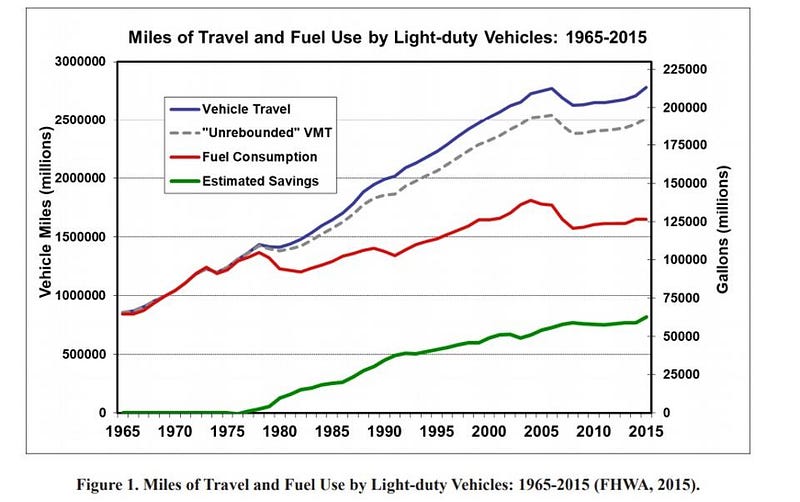
According to a 2017 study by David L. Greene at the University of Tennessee, the fuel economy improvements to cars and light trucks since 1975 have saved Americans a cumulative 1.5 trillion gallons of gasoline, along with an estimated $4 trillion, spread across all income groups. The amount of these savings cannot be overstated: 1.5 trillion gallons of gas is enough to power ever car and truck on the road today for more than 10 years. As of 2017, newly manufactures cars and light trucks have approximately double the fuel efficiency as an equivalent vehicle manufactured 42 years ago.
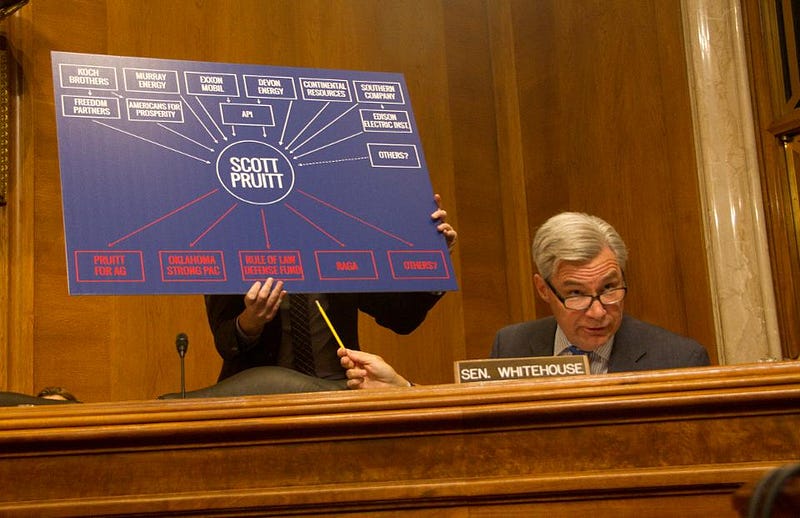
Over this same time period, vehicle choice has increased, with more makes and models of cars and trucks available than ever before. Meanwhile, automaker compliance with the standards has been at nearly 100%, with practically zero cost passed along to the consumer. It’s a stunning example of where the cost of regulations have been borne by the industry, without an increase in the price of the good. As a bonus, tailpipe emissions, responsible for 27% of the greenhouse gases in America, have been reduced by approximately one-third from the time period 1980–2014. But most strikingly are the actual, real-world increases in fuel economy.
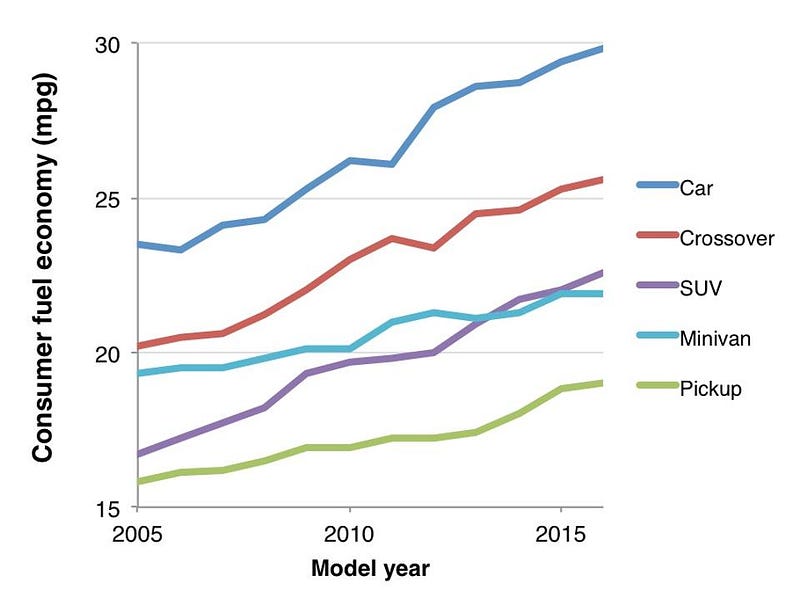
Across the board — cars, crossovers, SUVs, minivans, and pickups — the fuel efficiency of vehicles have continued to climb steadily, even just during the past decade. An economic analysis details the impact that the impact that this can have on the typical American household. For middle-income families, defined as households making under $100,000 in 1980 and under $120,000 in 2014, transportation costs make up a total of approximately 20% of total expenditures, a figure that rises to 30% for low-income families. Yet the increased fuel economy alone has saved families a tremendous amount: an estimated $17,000 over the 1980–2014 time period.
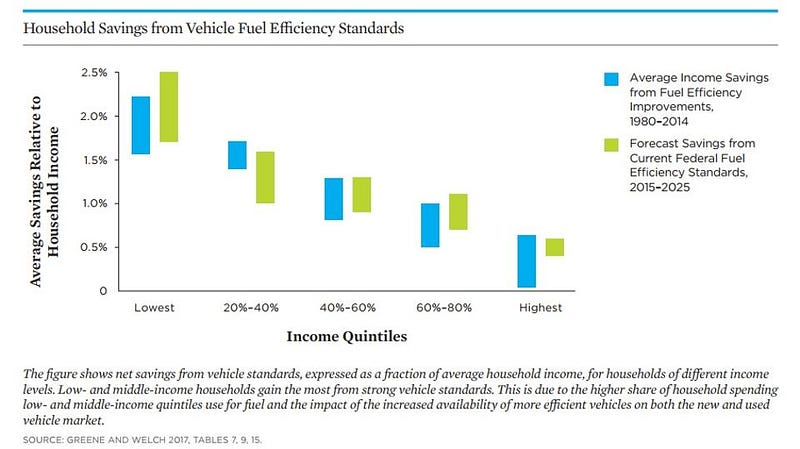
The greatest savings are achieved by the lowest-income households, but as the data shows, everyone benefits financially. The only beneficiaries from a repeal of these laws? The companies that manufacture these vehicles. According to an EPA study highlighted by research professor John M. DeCicco,
Since [2008], as the economy recovered, so did car and truck sales. At the same time, fuel efficiency continued to rise, at first in response to the high pump prices, but more recently guided by the tighter CAFE standards and greenhouse gas regulations. Each of the past two years saw record new vehicle sales, yet at the same time improved technology continued to trim fleet average CO2 emissions. In the past decade, the CO2 emission rate has declined by an average of 2.3 percent per year.
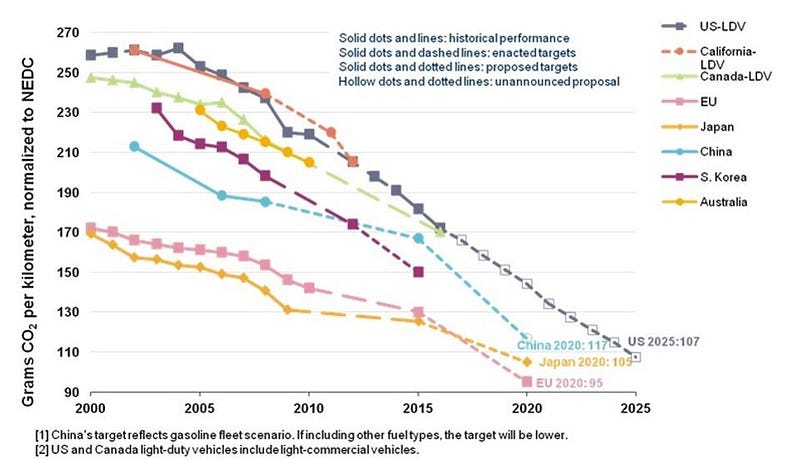
The lesson we’ve learned from this, and from the bailout of the automotive industry nearly a decade ago, is that car companies will not regulate themselves and value fuel economy unless we impose the external pressures of government standards. At a time when oil prices are falling, this is even more important, as low oil prices historically correspond to a lack of investment in fuel economy. While the estimated cost of the latest, Obama-era regulations to the auto industry comes in at $200 billion over the 2012–2025 time period, new revenue is estimated to be over $7 trillion. In other words, the costs of the regulation are expected to be just 3% of gross sales, while typical productivity gains of 1% per year easily outstrip that.
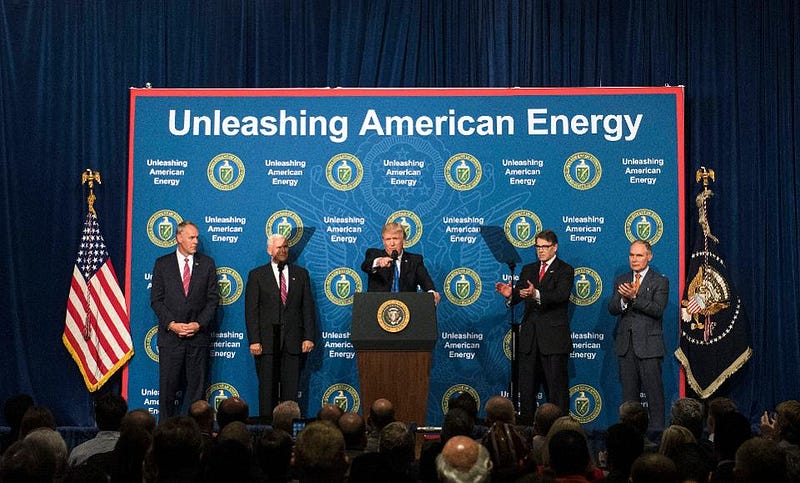
Everyone agrees that more money in the hands of American consumers is required for financial prosperity, for increased spending, and to grow the economy. The fuel economy standards imposed by the government as part of the regulations on the auto industry have been instrumental, across-the-board, in putting money back into the pockets of all American families, regardless of income level. The lowest-income families benefit the most, saving 2% of their estimated annual income, while middle-to-high-income families already save up to $1000 per year due to the standards. Removing them or rolling them back would amount to a redistribution of income away from American families and into the pockets of automobile manufacturers and the oil industry. It’s straightforward science and simple math, something we should all agree on when it comes to our country’s future.
Ethan Siegel is the author of Beyond the Galaxy and Treknology. You can pre-order his third book, currently in development: the Encyclopaedia Cosmologica.


